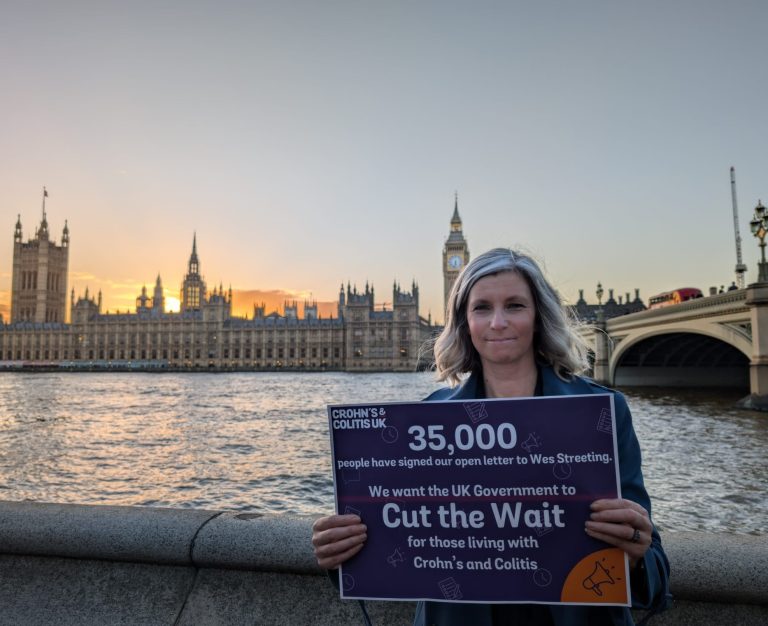Crohn’s & Colitis UK, the leading charity for Inflammatory Bowel Disease (IBD) in the UK, is calling on the Government to take urgent action to reduce waiting times for diagnosis and treatment for those living with Crohn’s Disease and Ulcerative Colitis. Today, the charity is delivering an open letter, signed by 35,000 people, to the Secretary of State for Health and Social Care, Wes Streeting, demanding change.
The charity’s appeal coincides with the launch of a national consultation on the future of the NHS, which aims to address significant challenges within the health service, including long wait times. According to Crohn’s & Colitis UK, more than half a million people in the UK are affected by IBD, with many facing lengthy delays before they are diagnosed and can begin receiving appropriate care. These delays are exacerbating health problems for patients and placing additional pressure on the NHS.
Marianne Radcliffe, CEO of Crohn’s & Colitis UK, explained the urgency of the situation: “We know that people with Crohn’s and Colitis are facing delays at every stage, whether that’s waiting for appointments, diagnostic tests, or treatment to start. At Crohn’s & Colitis UK, we are working hard to ensure that Inflammatory Bowel Disease is part of the national conversation about fixing the NHS. Listening to patients’ needs is critical. It’s time for things to change, and that change cannot come soon enough for those with Crohn’s and Colitis.”
The charity’s Cut the Wait campaign aims to bring attention to the issue of delays in care and calls for more resources to be allocated to support specialist IBD teams across the UK. For patients, these delays can have significant consequences, with many reporting a worsening of symptoms while they wait for care. Early diagnosis and treatment are crucial in managing these conditions and improving outcomes.
Bridgette Fraser, an IBD nurse specialist at a London hospital, sees first-hand the impact that long waits are having on patients. “I see dozens of patients every week who tell me how much IBD affects their lives. People with Crohn’s and Colitis want to be living their lives, not stuck on waiting lists. Specialist teams need the resources to support them properly.”
The charity also highlights the experience of patients like Meg Priest, who was diagnosed with Ulcerative Colitis 16 years ago, following a long period of uncertainty about her condition. “I was 14 when I first got ill, but it took years to figure out what was going on with my body, and even longer to get the right treatment. I’m supporting Crohn’s & Colitis UK’s Cut the Wait campaign because IBD needs to be taken seriously. It’s not just a ‘dodgy tummy’—it affects both physical and mental health. The longer people wait for care, the greater the risk of serious complications, like emergency surgery, which can be life-changing.”
As the Government considers the future of the NHS, Crohn’s & Colitis UK is urging ministers to prioritise improvements in the care and treatment of IBD, ensuring that patients can access timely and effective support.



